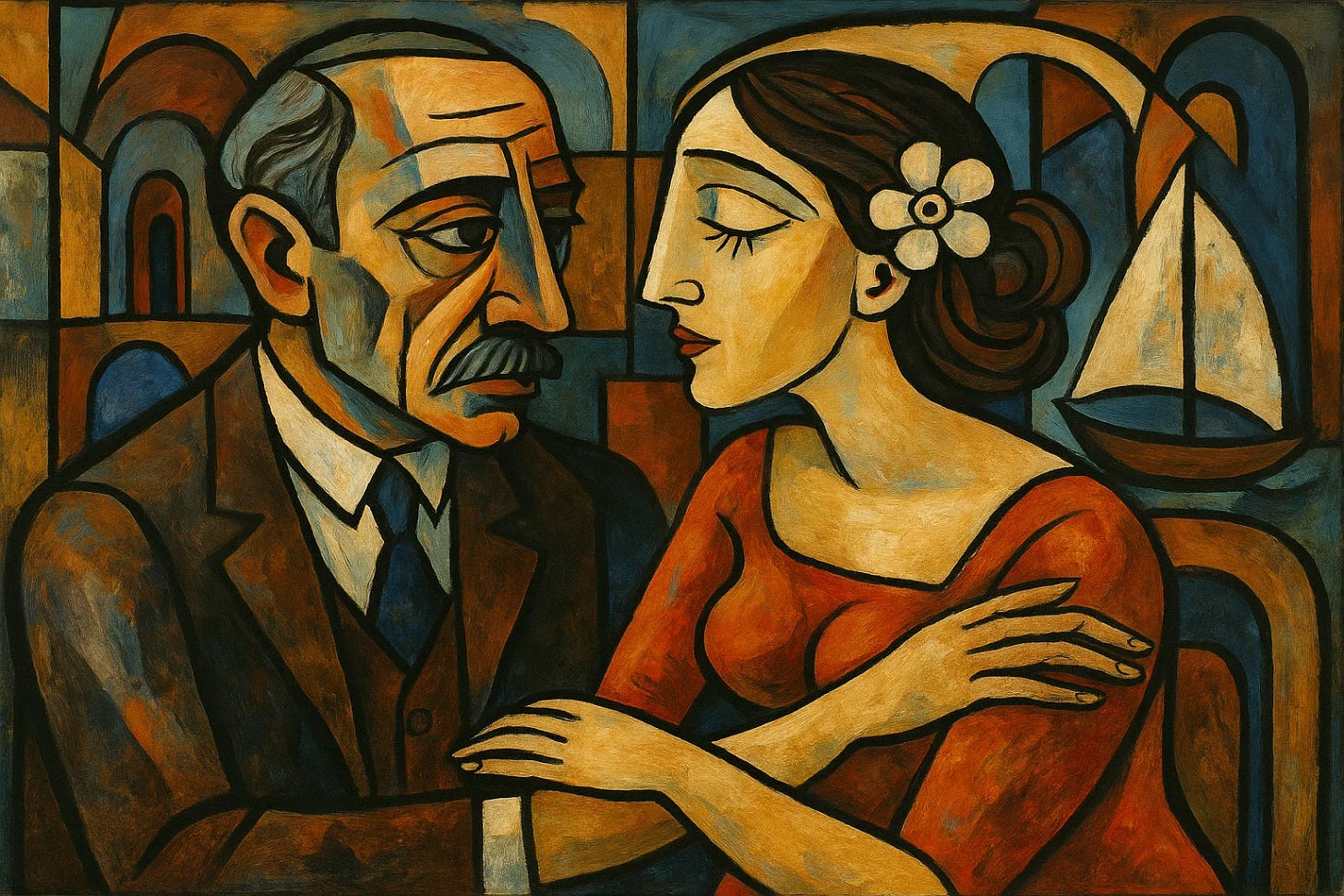It’s far more valuable to reread classic books than to endlessly chase new ones.
Books are not static objects. They are interactive devices, meeting the reader at a particular place and time. In that meeting, something alchemical happens—a synthesis that captures a fleeting point on the graph of your life, one that can never truly be revisited.
You never step in the same river twice.
Each time you open a book, you bring the totality of who you are in that moment. The material fuses with you almost genetically—your cells, your experiences, your memories all mingling with the words on the page. The result is a reading experience that could only exist for you, at that point in your life.
Lately, I’ve been revisiting books I first encountered in high school—novels that were already decades or even centuries old when I first cracked them open. And I’m blown away. The books themselves haven’t changed, but I have, and that shift has created an entirely new experience of them.
Our relationship has evolved.
Reading is like gazing into a mirror. Your reaction to the words reflects as much about who you are as it does about the story itself. This is especially true of fiction, where meaning is fluid and interpretation is endless.
Just as the great sacred texts of the world shift and morph depending on what we bring to them, the greatest works of literature seem to give us exactly what we need, precisely when we need it.
Right now, I’m diving back into the worlds of Gabriel García Márquez and Isabel Allende. I just finished Love in the Time of Cholera and The House of The Spirits for only the second time in my life, and the richness of that story completely enveloped me.
Two things struck me as I read:
First, the content. While the story is largely benign, it wraps a few dark, even perverse, subjects in language so beautiful that I’m surprised we were ever assigned it as teenagers.
For the life of me, I can’t recall how our teachers navigated those sections—how they explained the context without opening the floor to a barrage of uncomfortable questions.
I’m also astonished that material so explicit by nearly any standard was even allowed in Florida classrooms at the time. Times may have changed. Still, I’m proud to know our instructors trusted us enough to expect that we could handle world-class literature with maturity and tact. I hope we lived up to that trust.
Second, the experience itself. These stories land very differently on me as a thirty-seven-year-old married man than they did when I was a seventeen-year-old high school senior.
Back then, I was captivated by the magical realism—the dreamscapes Márquez and Allende wove, the way the extraordinary seemed to bubble up from the ordinary. I thought the sheer density of detail was what defined literary mastery—and in some ways, it does.
But two decades later, I find myself drawn less to the sensory overload and more to the human core. The precise, fluid explorations of love, loss, and the indecipherable ephemera of existence strike me now in ways they couldn’t at seventeen. How could they? I had no frame of reference for heartbreak, for enduring love, for grief.
Now, with twenty years of living behind me, I’m not just impressed by these works—I’m haunted by them. Heartbroken by them. And I look forward to meeting them again in another few decades, when I’m sixty-seven, so that they may reveal new secrets to me that were once inconceivable.



